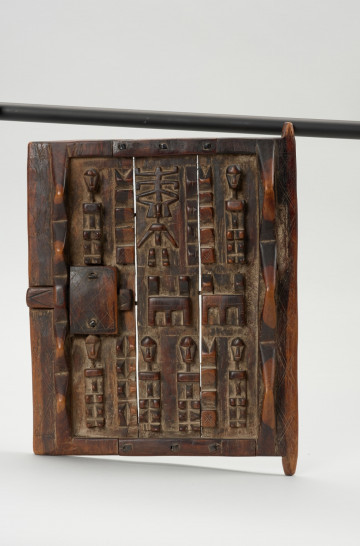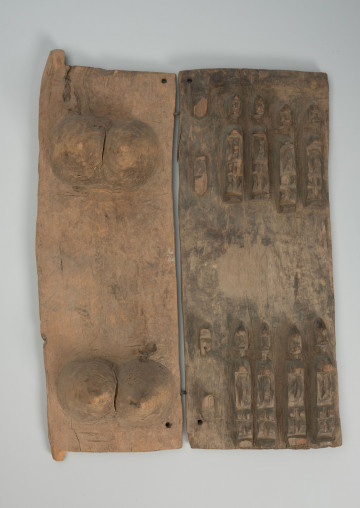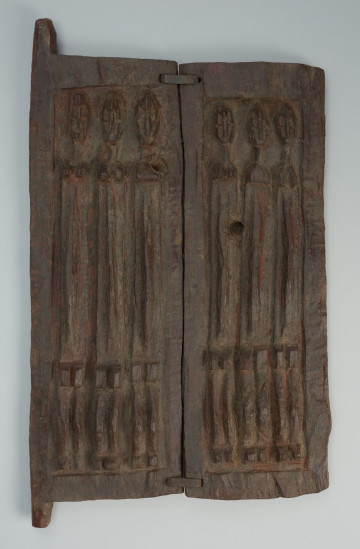
Granary door
między 1951 — 1989
National Museum in Szczecin
Part of the collection: Collection of Dogonian art
Granaries (guyon, singular: guyo) are an indicator of wealth and family size. The greater the number of granaries, the larger and more prosperous the family is. A young couple usually has two, one for each spouse, while large families with many children can have up to 15 guyon.Dogon granaries have a characteristic shape, and their walls always taper upwards. They are built of clay, from which large balls are formed before construction. When building a granary, the clay balls are placed one next to the other. The joints of the bricks are filled in, and any irregularities are levelled out only after the construction is complete. According to one version of Dogon mythology, the granaries were built like the Ark of Nommo, their roofs symbolising the sky and their thatch roofs the clouds. Although the symbolism and function of thatch (protection from the rain) are significant to the Dogon, not all guyons are topped with it. For example, in the village of Youga Piri, located at the top of Youga Hill, which according to the Dogon resembles a foot, all granaries have flat roofs and are devoid of any roofs. The village is inhabited by the descendants of Arou, the youngest of four mythical brothers who came from the Mande country. The inhabitants of Youga Piri are forbidden to build thatched roofs on their granaries because a fire broke out in the remote past, caused by burning grass on top of guyo. The cruel element destroyed the homestead and deprived all its inhabitants of their lives. Therefore, the ancestors imposed a ban on the placement of grass thatch on the granaries, which is still observed today. The door is made of two boards joined together with iron clamps and fitted with a type of hinge called a pole. They are decorated with images of ancestors and snakes and equipped with a ta koguru lock resembling the locks of the Bamana people.
Ewa Prądzyńska
Author / creator
Dimensions
cały obiekt: height: 55 cm, width: 37,2 cm
Object type
farm building
Creation time / dating
Creation / finding place
Identification number
Location / status

między 1951 — 1989
National Museum in Szczecin

między 1970 — 1980
National Museum in Szczecin

między 1901 — 1950
National Museum in Szczecin
DISCOVER this TOPIC
National Museum in Lublin
DISCOVER this PATH
Educational path